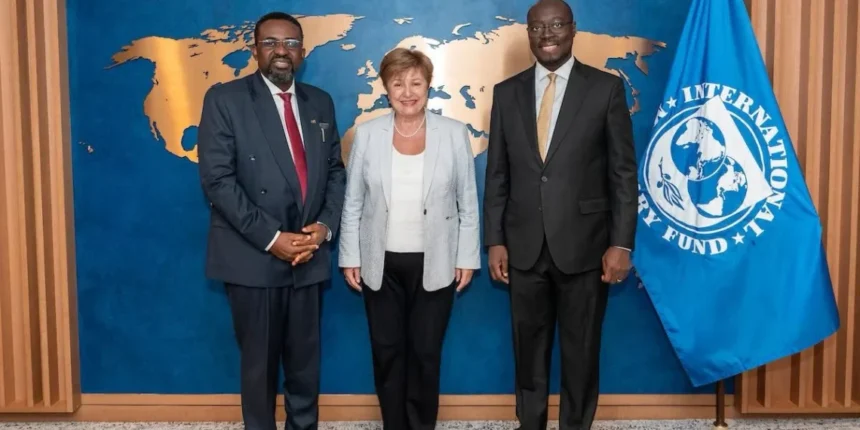ACCRA — The International Monetary Fund (IMF) has mandated that Ghana complete the recapitalisation of its state-owned banks by the end of 2025, as part of a broader strategy to bolster financial sector stability amid the country’s ongoing economic recovery program.
The deadline was outlined in a statement following the conclusion of the IMF’s fifth review of Ghana’s $3.2 billion, three-year Extended Credit Facility (ECF), approved in May 2023. An IMF staff mission, led by Ruben Atoyan, visited Accra from September 29 to October 10 to evaluate progress on reforms. The review reached a staff-level agreement, pending approval by IMF management and the Executive Board, which would unlock about $385 million in funding and bring total disbursements to roughly $2.8 billion.
“The authorities have taken strong actions to support financial stability, including implementing the strategy to restructure and reform state-owned banks,” Atoyan said. “The recapitalisation of state-owned banks is expected to be completed by end-2025.” The push aligns with efforts to enhance governance, transparency and operational efficiency in state-owned enterprises across key sectors like gold, cocoa and energy.
Ghana’s banking sector has faced headwinds since the 2022 domestic debt exchange program (DDEP), which exposed capital shortfalls in several institutions, including state lenders. While most of the 13 affected banks have met or exceeded recapitalisation targets by end-2024 through profitability gains and support from the Ghana Financial Stability Fund (GFSF), a few — including one state-owned bank — lag behind due to delayed shareholder commitments, rising non-performing loans and provisioning issues. The Bank of Ghana has intensified monitoring and corrective measures to accelerate progress toward a 13% capital adequacy ratio (CAR) by the deadline.
The IMF praised Ghana’s macroeconomic stabilization, noting stronger-than-expected growth in the first half of 2025, driven by services and agriculture, alongside robust exports and improving foreign reserves. Fiscal performance remains on track, with a primary surplus of 1.1% of GDP for the first eight months, positioning the country to hit a 1.5% year-end target. Inflation has eased within the Bank of Ghana’s target band, enabling gradual monetary policy relaxation.
Advancements in the energy sector were also highlighted, including renegotiated power purchase agreements, enhanced payments via the Cash Waterfall Mechanism and quarterly tariff adjustments to align with costs. Debt restructuring is progressing, with bilateral deals secured with five countries and talks ongoing with commercial creditors.
Under President John Dramani Mahama’s administration, which assumed office after the December 2024 elections, Ghana has committed to fiscal discipline through a new Fiscal Responsibility Framework and a 2026 budget aligned with program goals. The IMF projects 4.8% growth in 2026, contingent on sustained reforms.
Failure to meet the recapitalisation deadline could jeopardize financial stability and access to further IMF support. Analysts emphasize that timely execution will reinforce investor confidence and aid Ghana’s shift toward inclusive growth.




